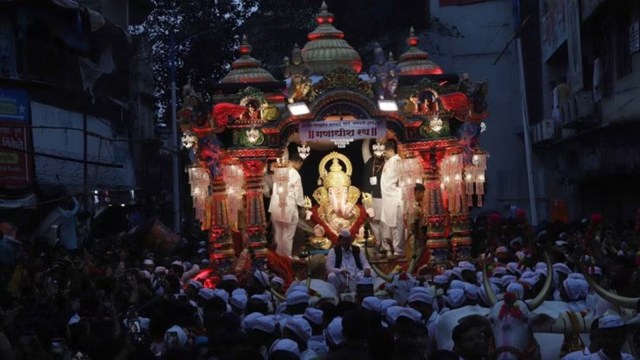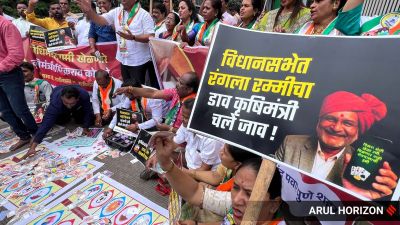Click here to join Express Pune WhatsApp channel and get a curated list of our stories
How a Ganesh Mandal is breaking the stigma around menopause
Conservative societies across the world have an uncomfortable relationship with menstruating women – and menopause only compounds the problems for women by adding social confusion to the process of intense physical changes.
 From the costumes to the language, the play uses folk elements that are easy and relatable. (Representative image)
From the costumes to the language, the play uses folk elements that are easy and relatable. (Representative image)The bustle of Ganeshotsav at the Veer Shivraj Mandal Trust in Guruwar Peth gets an added burst of energy when a stage play is announced in the evening.
Women, dressed in bright nauvari saris and resplendent in traditional jewellery, come on stage carrying soop, used in rural areas for winnowing grains. As devotees turn into audiences, the performers launch into a peppy song and dance and, then, tell a story that is unusual for a Ganesh mandal.
The play, Gele te Chaar Diwas (Gone are Those Four Days), revolves around a young woman who was taught by her mother the ways of the menstrual cycle when she was a teenager. Now, it is she who must guide her mother about what to expect during menopause.
“While a song has women announcing that their periods have been missing for the last 12 months, the story reflects on the associated symptoms of menopause, such as brain fog, hot flashes and mood swings. Beti (Daughter) tells her Papa that Mummy needs you right now. She needs someone to understand her pain and what she is going through right now. Thus, the daughter’s actions become a sequel to what her mother had done for her,” says Piyush Shah, the director and writer of the performance. The play lasts almost 20 minutes and the performers have rehearsed for more than a week before Ganeshotsav.
Conservative societies across the world have an uncomfortable relationship with menstruating women – and menopause only compounds the problems for women by adding social confusion to the process of intense physical changes.
“In 60-70 per cent cases in India, traditions are strictly followed regarding menstruation and menopause. A woman might hold her own in the workplace but her life at home is very different. In the name of culture, she is made to sit separately and not participate in religious activities,” says Shah. “When a woman is going through menopause, her family complains that she has become irritable and short-tempered. But, it is a phase that every woman goes through,” he said.
These are some of the elements that the play seeks to draw attention to. From the costumes to the language, the play uses folk elements that are easy and relatable. “To avoid being preachy, we have packed the play with a sense of joy and celebration,” says the director. In an important scene, the daughter tells her mother, “We are all with you. Your family stands in support so, don’t worry Mummy. We are here to care for you.” It’s a message that the artists hope that devotees will remember long after Ganeshotsav.
Click here to join Express Pune WhatsApp channel and get a curated list of our stories








